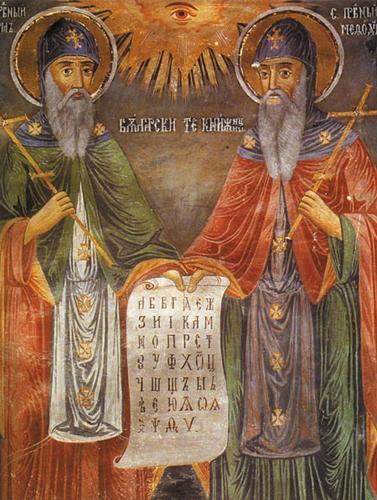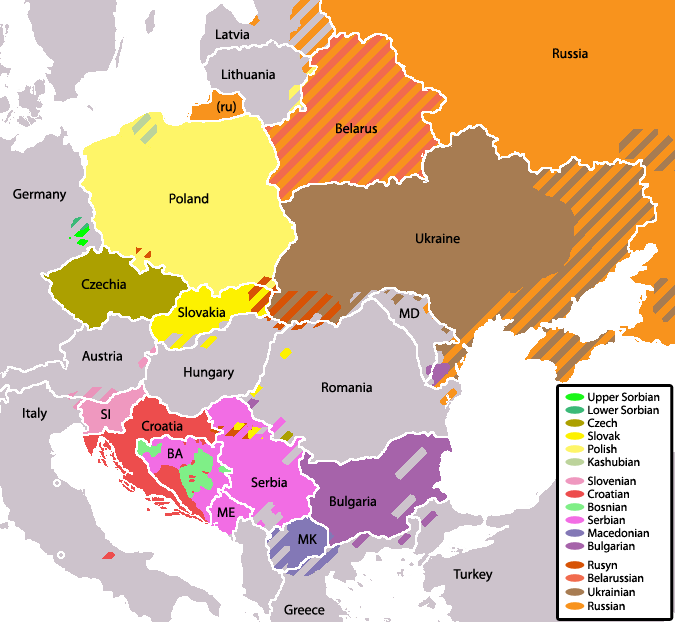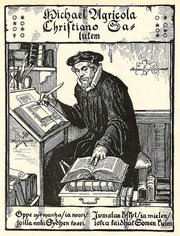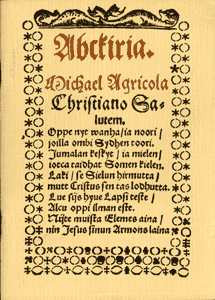May 11
Born in Thessaloniki in the 820’s, Cyril and Methodius are considered ‘Equals with the Apostles’ in the Eastern Orthodox Church, but were overlooked by the Roman Catholic Church for nearly a thousand years.
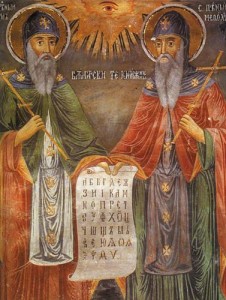
Cyril & Methodius were two missionary brothers with a gift for language. In the 860’s the Prince of Great Morovia (in Eastern Europe) entrusted them with the task of translating Biblical texts into the Slavic tongue of Great Morovia. They had one major obstacle: No such language existed. At least not in any standardized, written form. The Slavic languages were a collection of spoken dialects that stretched from Russia to the Adriatic coast.
The brothers first had to devise a whole new alphabet, named Glagolitsa (a variation of the Greek alphabet) to capture the Slavic language in writing.
The language the brothers developed, known today as Old Bulgarian, fortified the spread of Christianity across Eastern Europe. The brothers died in 869 and 882. But as a posthumous reward for their noble efforts, the East Frankish clergy outlawed the brothers’ language and imprisoned 200 of their students and disciples.
Old Bulgarian posed a political threat to the West. The codification of civil laws in a non-Latin, non-Germanic text limited Frankish-German control over the Slavic rulers. But ironically, the exile and diaspora of the users of Old Bulgarian to other parts of Eastern Europe only served to spread the knowledge and use of the language.
The Glagolitic alphabet was soon replaced with a descendant called Cyrillic (sorry Methodius), developed by a student of theirs, and is still in use over a thousand years later.
It wasn’t until the 1880s that the Saintly brothers got their own feast day in the Roman Catholic Church (July 5), and in 1980 Pope John Paul II deemed Cyril and Methodius two patron saints of Europe.
In the Eastern Orthodox Church, Saints Cyril and Methodius Day is observed on May 11 (Julian calendar) which is May 24 in the Gregorian calendar. It is also known as the Day of Letters.
In the Roman Catholic Church, their feast day is February 14.

